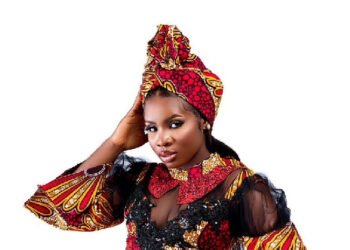Collaboration and harmony among Ghanaian artists can benefit the music industry.
Collaboration provides an opportunity for artists to celebrate Ghanaian culture and diversity. By working together, they can incorporate different styles, languages, and musical elements, providing a platform to showcase the richness of Ghanaian music to the world.
The synergy with other artists allows for the exchange of ideas, skills, and perspectives which can lead to the creation of unique and innovative music that can attract a wider audience and help push boundaries in the industry.
Artists who collaborate can tap into each other’s fan bases, allowing them to reach new audiences and gain more exposure, this can lead to increased streams, downloads, and overall popularity.
By supporting one another, sharing resources, and advocating for better conditions, artists can contribute to a healthier ecosystem that benefits everyone involved when they collaborate.
Collaboration promotes a positive image of the music industry by showcasing unity and teamwork. It sends a message to fans, aspiring artists, and the general public that Ghanaian artists are supportive of one another and are working together to elevate the industry as a whole.
Renowned Ghanaian Reggae artist Rocky Dawuni urged artists to focus on collaboration and harmony rather than engaging in conflicts.
He condemned the situation of artists throwing insults and jabs at one another on social media, noting that music has an influential role in shaping the minds of the youth and future leaders.
According to him, using arts as a tool for division undermines its purpose.
“I don’t believe that artists should focus on attacking each other. Artists should rather learn to work with each other. That’s how you build a solid, peace-driven environment. Any kind of toxic environment feeds negativity. We are projecting our art to the leaders of tomorrow. So if we make that art a means of division, then we lose the higher point of what it is.”
Rocky Dawuni
His remarks came in response to Dancehall artist Shatta Wale’s constant attacks towards colleague, Stonebwoy.
While conflicts can sometimes arise due to competition or personal differences, it is generally more productive for artists to prioritize collaboration and harmony. By doing so, they can create a thriving and vibrant music scene that benefits everyone involved.
Musicians To Be Proactive On Matters Affecting Them

It’s crucial for Ghanaian artists to be proactive when it comes to matters affecting them. Being proactive entails actively taking the initiative to address issues and finding solutions, rather than waiting for others to do it. By being proactive, artists can have more control over their careers and advocate for their rights and interests.
Artists should come together to form associations or unions that represent their interests. This provides a platform to address common issues, negotiate contracts, and advocate for fair treatment and compensation.
It’s important for artists to educate themselves about their rights and understand their industry’s legal and business aspects to empower them to make informed decisions and protect their interests.
Building strong professional relationships with industry peers, stakeholders, and decision-makers can open doors to opportunities and collaborations. Networking also allows artists to learn from and support each other.
Artists need to be adaptable and open-minded to explore new opportunities.
Artiste manager Nana Poku Ashis stated that many Ghanaian creatives are ‘timid’ and refuse to stand up for themselves when they feel wronged.
He pointed out that many musicians don’t air their displeasure, even when they know they are right. He urged musicians to be proactive concerning matters affecting them.
“A lot of musicians are very timid. They know what’s right, or they have the facts to back their case. But most of them just stay behind. You need to make a case for yourself at all times.
“This has shed light on a typical example of how some of these musicians (if they feel things are going wrong) should act. It’s not about fighting, it’s not about insults. Make a case for yourself, and the right quarters will hear it.”
Nana Poku Ashis
He reacted to the inclusion of rapper Amerado’s song “Kwaku Ananse” in the TGMA nominee list after the musician’s petition.
The artiste manager encouraged musicians to speak up against injustices, stating that silence often allows errors to go uncorrected.
Being proactive is essential for Ghanaian artists to navigate challenges, protect their rights, and thrive in the industry.
READ ALSO: Ghana’s Debt Explained





















